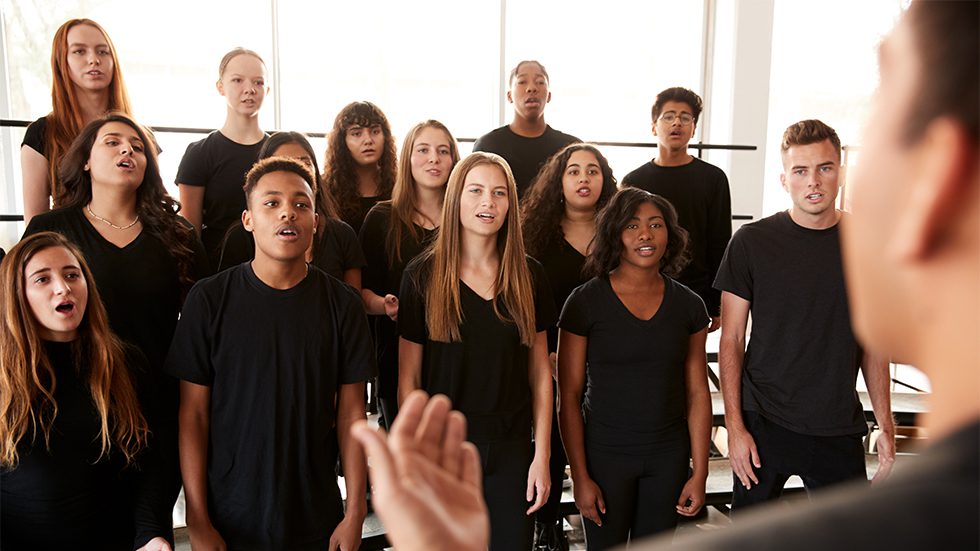After finishing your exams, preparing audition pieces, auditioning for several universities, and practising your skills over the summer, you probably feel like it’s time to slow down and enjoy uni life. But it’s only going to get busier — and that’s a good thing!
But to ensure you’re feeling your best throughout the transition, you must look after your mental and physical health. Uh-huh, making it through freshers week without getting ill is possible.
Whether you’re studying as a theatre, music, dance, film or circus performer or technician, or in any other performing arts profession, we have tips to help you settle in without stress. Scroll down to get the lowdown now.
Top 5 Tips For New Performing Arts Students
If you want to hit the high notes confidently, you’ll need to feel your best. Here are some critical tips new students need to know when starting university.
1. Use a Meal Plan
Yes, we sound like your mother. But healthy eating is the key to ensuring your mental and physical health is in check. If you’re not feeling 100%, you won’t be able to nail your first dance classes or show off your monologue skills.
Create a meal plan of healthy dishes that you can cook without fuss. This way, you won’t waste time (and more money) going to the shop daily, and you can ensure you’re getting good nutrition. Check out Save The Student’s 28 cheap and healthy meal ideas for some inspiration.
Or sign up for our upcoming online nutrition workshop with Lucy Swain, an NHS professional, who will be lecturing about the importance of diet, nutrition and performance, how to eat well on tour, and the importance of staying hydrated. This free event is on the 7th of November, and you can find out more here.
2. Drink Responsibly
University is the time to let loose, but your partying habits shouldn’t impact your daily life. Leaving the party early might leave you with FOMO, but we promise you’ll feel better when you leave at 1 am rather than 5 am.
3. Get Prepared For Class
Nervous about your first few classes? Try to get ahead. If you have the syllabus, you can familiarise yourself with the upcoming content. From the history of the performing arts to the plays you’ll be studying, knowing as much information as possible is helpful to calm your nerves.
Pro Tip: Look at previous students’ work. This will show you what lies ahead for your career.
4. Don’t Neglect Exercise
Whether you’re a dancer, pianist, or lighting technician, exercise is vital for your overall health. You don’t need to be running marathons, but doing at least 150 minutes of moderate activity a week is necessary to stay well.
If you don’t know how to get started, consider making a healthy practice diary to keep your goals on track. Find our healthy practice diary resource here to get started.
5. Sleep!
When you’re suddenly living with housemates, falling into a healthy sleep schedule can be challenging. But avoid going to bed at sunrise whenever possible. Sleep affects your body’s energy levels, intellectual functions, and even molecular functions. Don’t go without.
Want to learn how to prioritise sleep when working in music? On the 28th of September, we’re running a free event with a sleep psychologist to help you learn about sleep hygiene, what impacts sleep, and the consequences of poor sleep habits. See the event here.
Clinics for Performing Arts Students
… And everyone working in the performing arts
Taking care of your healthy practice basics can help to prevent many avoidable problems. But if you do need support, BAPAM’s free, expert clinical service provides accurate diagnosis and advice to overcome practice-related problems, helping you to get back to focusing on your creative work quickly and safely.
We understand life in the performing arts and provide free consultations online and face-to-face in Belfast, Birmingham, Cardiff, Gateshead, Liverpool, London and Manchester.
Find more information on the BAPAM clinics now.
For Teachers & Course Leaders
Students are a large focus of BAPAM’s work, but they’re not the only performing arts professionals we assist. Educators can also use BAPAM’s clinical services, share our health resources, brush up on healthy practice skills for themselves and their students at BAPAM workshops, and commission bespoke education sessions for their institution.
And if you’d like to order physical performing arts health resources to share with your colleagues and students, get in touch during September and October, and we’ll send out the following for free (within the UK):
- A printed BAPAM welcome pack
- Warm-up exercises leaflets
- Performance anxiety posters
- Workshop posters
Find out more about the content and order here.
Start September With Success
Whatever discipline you’re studying, these tips will help you start the term on a winning note.
And the support doesn’t stop there. BAPAM is a charity dedicated to linking performing arts professionals with expert health and wellbeing services. If you need extra support, we’re on hand to assist. All degree-level performing art students can access BAPAM’s services, and you can find out more about us here.
Or check out our BAPAM Welcome Pack — an expert resource designed to help you perform at your best while caring for your mental and physical health.
Good luck to all 2023 students! You’ll smash it.

